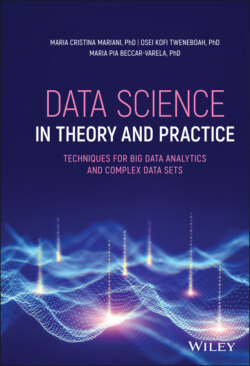Читать книгу Data Science in Theory and Practice - Maria Cristina Mariani - Страница 12
1 Background of Data Science 1.1 Introduction
ОглавлениеData science is one of the most promising and high‐demand career paths for skilled professionals in the 21st century. Currently, successful data professionals understand that they must advance past the traditional skills of analyzing large amounts of data, statistical learning, and programming skills. In order to explore and discover useful information for their companies or organizations, data scientists must have a good grip of the full spectrum of the data science life cycle and have a level of flexibility and understanding to maximize returns at each phase of the process.
Data science is a “concept to unify statistics, mathematics, computer science, data analysis, machine learning and their related methods” in order to find trends, understand, and analyze actual phenomena with data. Due to the Coronavirus disease (COVID-19) many colleges, institutions, and large organizations asked their nonessential employees to work virtually. The virtual meetings have provided colleges and companies with plenty of data. Some aspect of the data suggest that virtual fatigue is on the rise. Virtual fatigue is defined as the burnout associated with the over dependence on virtual platforms for communication. Data science provides tools to explore and reveal the best and worst aspects of virtual work.
In the past decade, data scientists have become necessary assets and are present in almost all institutions and organizations. These professionals are data‐driven individuals with high‐level technical skills who are capable of building complex quantitative algorithms to organize and synthesize large amounts of information used to answer questions and drive strategy in their organization. This is coupled with the experience in communication and leadership needed to deliver tangible results to various stakeholders across an organization or business.
Data scientists need to be curious and result‐oriented, with good knowledge (domain specific) and communication skills that allow them to explain very technical results to their nontechnical counterparts. They possess a strong quantitative background in statistics and mathematics as well as programming knowledge with focuses in data warehousing, mining, and modeling to build and analyze algorithms. In fact, data scientists are a group of analytical data expert who have the technical skills to solve complex problems and the curiosity to explore how problems need to be solved.
